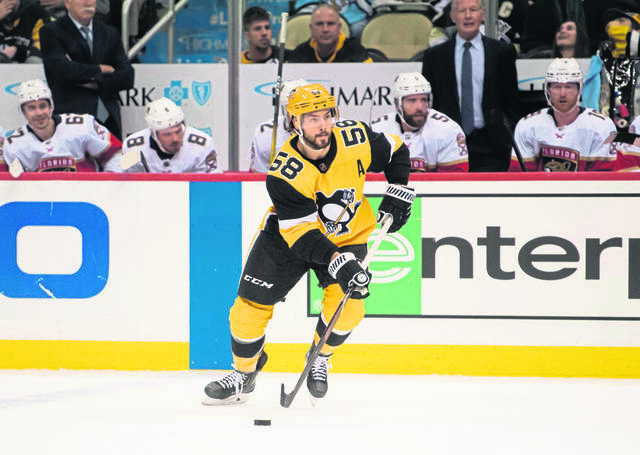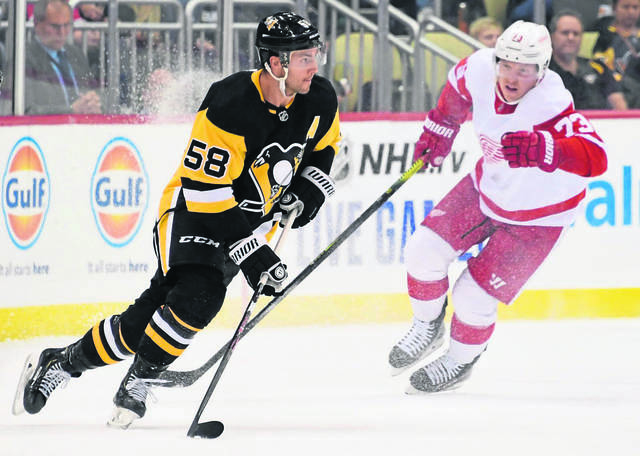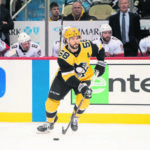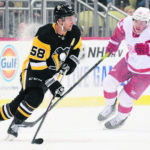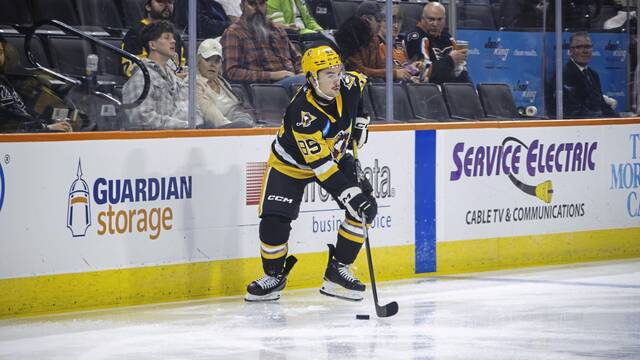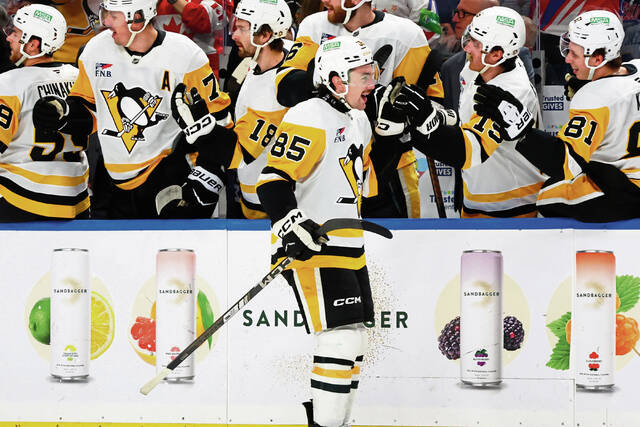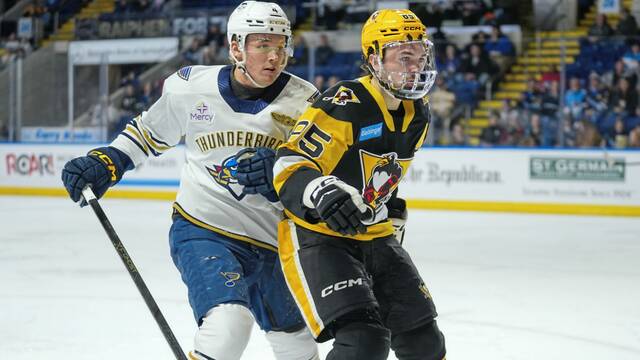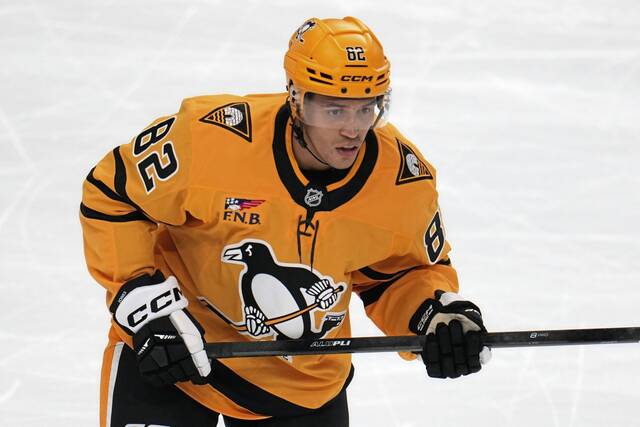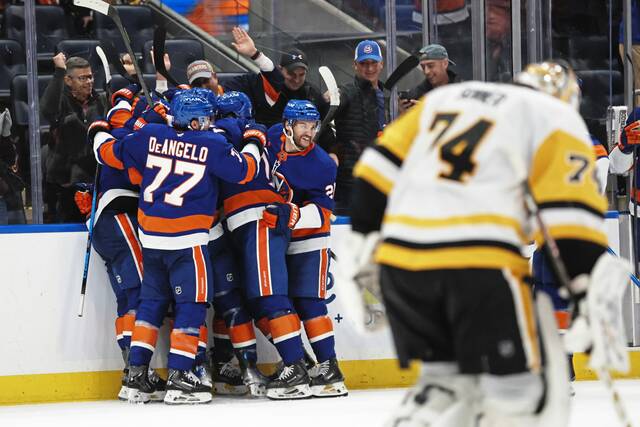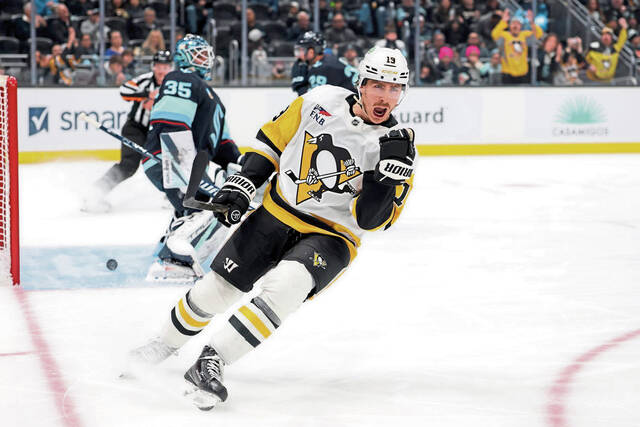Kris Letang has seen things get ugly between the NHL and the NHLPA before.
The Pittsburgh Penguins defenseman sat through the NHL’s lockout in 2012, which limited the 2012-13 season to strictly the 2013 calendar year and a 48-game regular-season schedule.
The two sides have had a pretty cantankerous relationship over the past two-plus decades, with four work stoppages over collective bargaining disputes.
Yet, amid a work stoppage unlike anything seen since 1919, when the Stanley Cup Final was canceled because of an influenza outbreak, the two entities are seemingly engaged in a harmonious engagement as they work together — while being physically apart — to figure out a way to conclude the 2019-20 season.
“We want the best for our sport and the safety of people around us,” said Letang, who serves as the team’s representative to the NHLPA.
The rapport between the NHL and NHLPA to find a way to emerge from the hiatus caused by the coronavirus pandemic comes in stark contrast to the rancor between MLB and its players’ association.
“Everybody wants the same goal here,” Letang said. “To grow the game and make sure we make our sport proud. But at the same time, every question about the safety, which is the most important thing for everybody, I think that’s what it’s been the focus on. The NHL and the NHLPA agree on that.”
That common focus led to the NHL’s announcement Tuesday of a plan to include 24 teams in a postseason format that would be played in late summer and early fall.
That didn’t mean there wasn’t debate among NHLPA members on that plan.
“There’s a lot of discussion,” Letang said. “Obviously, bringing everybody up to date was the most important because it was a long process. The process going into that was not only to make it fair, but it’s to make it a number that is working with the eight-teams-per-site formula. It was tough to take the points that you get in the season, your (place in the) standings in your division, also the fact that teams were on the verge of making the playoffs and mixing everything with the amount of teams that would make it work. And 24 was always the best number.”
There still are considerable details to iron out.
Under this format, the Penguins will face the Montreal Canadiens in a best-of-five series in the qualifying round. The winners of those series will advance to the first-round of the playoffs. The league and the players association still have to agree if the first two rounds will be best-of-five or best-of seven.
The conference finals and Stanley Cup Final will remain best-of-seven.
The NHL has not used best-of-five series since the divisional or first rounds of the 1986 postseason.
“I talked to a bunch of guys,” Letang said. “I think it’s just an easier thing to just put a best-of-seven because everybody knows what to expect and you have no excuses of not being prepared for that.”
Getting prepared will be the next step for Letang and his peers. On Monday, the NHL unveiled guidelines for what it described as “Phase 2,” which will allow players to work out in limited groups at team facilities in “early June.” On Wednesday, Gov. Tom Wolf approved professional sports teams to practice or even play actual games, provided the venues they utilize reside in counties that are in the yellow or green phase of the state’s plan for reopening businesses.
Under the NHL’s plan, training camps, with full participation, could open by July.
“When you go into training camp, teams really trust their players to do the work in the offseason, which is training hard, get stronger, better conditioning,” Letang said.
“As you get into training camp, you try to work two things. You try to work collective (team) stuff, and also they try to bring you up to speed. In Phase 2, the informal skates, I think it’s going to be up to the players to really ramp up their work and make sure they simulate the conditioning of a style of game. When training camp is going to start, I really think coaches are going to focus on the collective side of things. Because you don’t have that much time. You’re going to get right into it. You’re going to want to make sure your team’s game is top notch. It’s going to really be up to the players to do the work in that Phase 2 on the ice and off the ice.”
If nothing else unforeseen occurs, NHL games could resume by late July in one of two hub cities — Pittsburgh being one of the candidates — but with no fans in attendance.
While that surely will be an alien environment for what are typically high-intensity confrontations, Letang doesn’t foresee it being a difficult adjustment.
“It’s going to be so different,” Letang said. “But honestly, guys will get used to it quick. They’re going to be in the zone. They’re going to be focusing. It’s going to be so different, but eventually, after maybe a period or two or maybe a game, they’re going to get used to it. It shouldn’t affect the guys at all. You know what you’re playing for and your focus should be on that.”
Even with the optimism created by Tuesday’s developments, concerns still linger for players with regards to health and the prospect of being sequestered in a hotel or practice facility, away from family members for several months potentially.
“Obviously the safety of the players, the safety of the (team employees) that will be traveling and will be part of the group that goes (to a hub city), that’s the No. 1 thing,” said Letang, a father of two. “Guys want to be secure there. And the families, too. It’s a situation that’s it’s not a road trip for seven games or 10 days like we’re used to in the season. Guys are going to be away from their family for an extended period of time, and their kids.”
Having suffered a stroke in 2014, Letang indicated he has been assured there would be no additional ramifications with his previous health woes and potential exposure to the coronavirus.
“I’ve had my fair share of questions, and they’ve all been answered,” Letang said. “Certainly, I can say I would be safe to play.”
Ultimately, that’s what Letang and most other NHLPA members want to do.
Play.
“The guys have been sitting home,” Letang said. “They don’t really know what to expect. Then we have a plan. Obviously, there’s a long way (to go) but if you have a plan established, it’s already a good sign. We just now have to make sure that guys are getting ready in the safest environment possible.”


